In short, friction feeders use friction to separate individual items from the stack and feed them into the line. This equipment is widely used in printing, packaging, pharmaceuticals, food and beverage industries. In this article, we will provide a detailed overview of how friction feeders work.
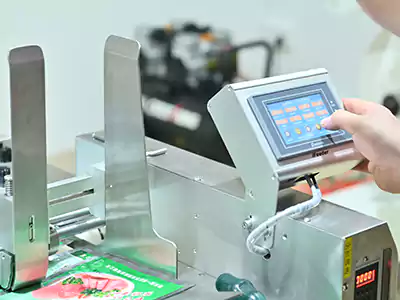
First of all, we need to carefully understand that friction feeders separate and convey materials through the following steps:
1. Material Stacking Placement:
Items to be fed, such as paper, cartons, cards, plastic packaging and other flat materials are placed in the form of stacks in hoppers or trays. The hopper is designed with an inclined angle to ensure the items slide smoothly into the separation position.
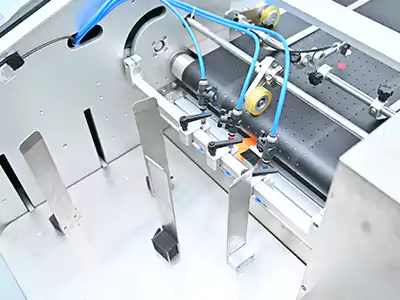
2. Separation System:
The bottom item in the stack is separated from the rest of the items by a separation system. Friction rollers or belts are often used in this process, and these components grip the bottom item and move it forward. The separation mechanism consists of a loading roller, which pushes the items forward, and a separation roller, which prevents the excess items from moving by applying reverse friction. The surface material of the separation rollers is usually rubber or polyurethane with a high coefficient of friction to ensure precise separation.
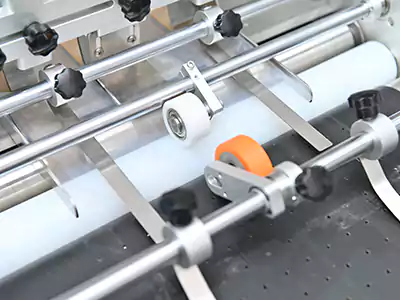
3. Feeding and Conveying:
The separated items are conveyed forward by friction rollers or belts. During the conveying process, sensors detect the presence and movement of the items to ensure that the items move according to a predetermined trajectory, and some friction feeders also support auto-correcting position functions and double-sheet detection extensions to maintain accurate material delivery and reduce manual screening of incorrect material. The speed and timing of the feeding process can be adjusted according to the needs of the production line and is usually controlled by a frequency converter or servo motor. The conveyor belt’s design considers the material and shape of the items to avoid sliding or tilting during the conveying process.
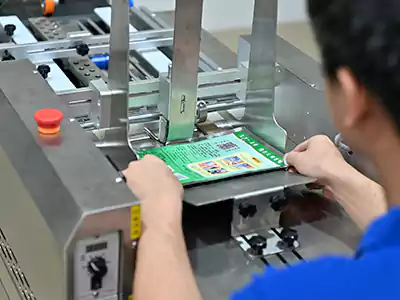
4. Adjustment and Control:
Friction feeders are equipped with a variety of adjustment features to handle items of different sizes, shapes and thicknesses and support customization on demand. The adjustment sections include adjustable loading roller pressure, separation roller spacing, friction roller speeds and angles, etc. In addition, the machine is equipped with an advanced control system including a PLC (Programmable Logic Controller) and Human Machine Interface to ensure feed accuracy and consistency, detect jams and make real-time adjustments. The control system is equipped with open communication ports for independent control or networking, allowing it to be programmed to different operating modes to meet the specific requirements of different production tasks.
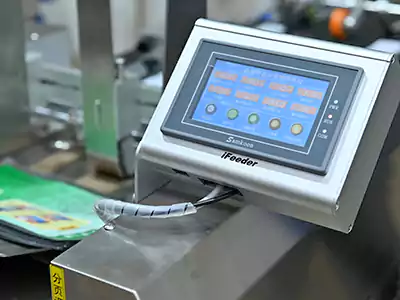
5. Integration with Production Lines:
The separated and fed items are conveyed to the production line for subsequent processing such as printing, labeling, packaging or assembly. Friction feeders are often seamlessly integrated with other automation equipment (e.g. printers, labelers, packaging machines, etc.) to form complete automated production lines. In order to adapt to different production environments, friction feeders can be equipped with movement and positioning devices for easy and flexible configuration between production lines.
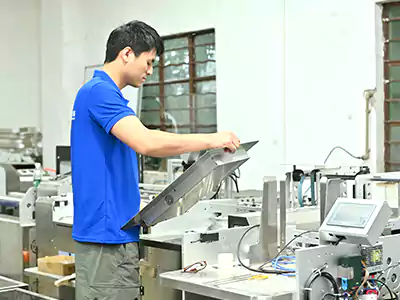
In a word, I believe that through the above introduction, you will have a little understanding of the working principle of the friction feeder, if you want to discuss this device in depth or business cooperation, you may wish to contact the iFeeder friction feeder manufacturer, they will give you loyal advice or solutions.
